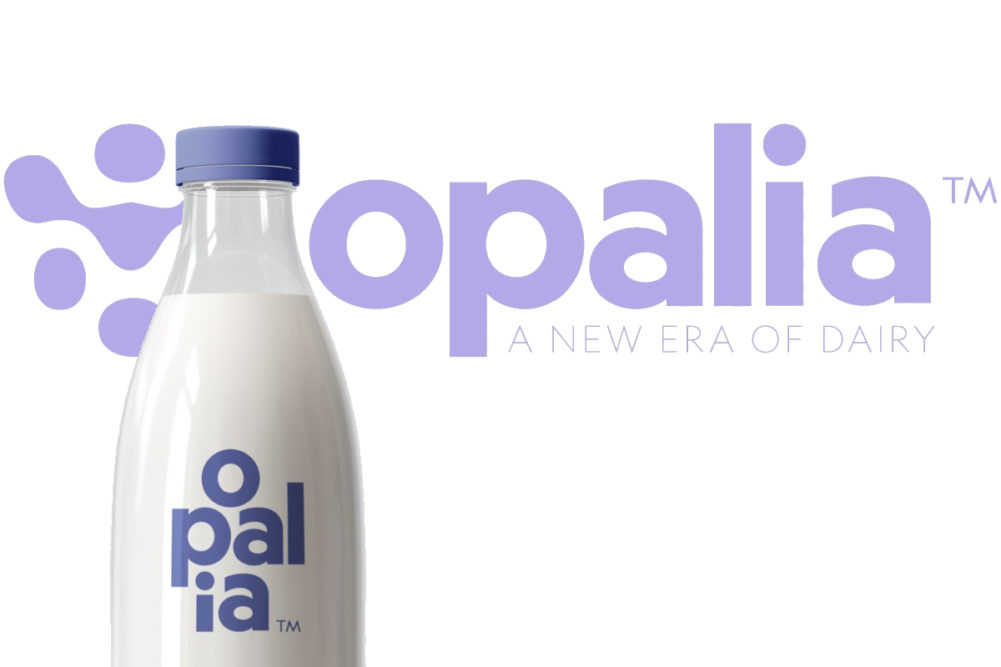MONTREAL – Opalia, an early-stage foodtech company that makes whole milk by using mammary cells, announced a breakthrough that makes it possible to eliminate fetal bovine serum (FBS) from its cell-based manufacturing process.
As the company moves toward the commercialization of its animal-free cow’s milk, Opalia co-founder and CEO Jennifer Côté said by replacing FBS, a commonly used component of synthetic cell growth, with a cheaper cell growth substrate that isn’t derived from animals, the company reduced the cost and risk of manufacturing cell-based milk.
Côté said the company is one step closer to bringing a “no compromises” animal-free milk to consumers.
“We are still developing the process and doing R&D on the technology before we scale it to manufacturing capacities,” she said. “The idea of making milk with mammary cells is not novel. It's been tried by scientists in academia before it was done in startups. However, at Opalia we are developing proprietary technology that will accelerate the path to commercialization of milk made from bovine mammary cells.”
Oftentimes with synthetic cell growth in this field, FBS is extracted from the placentas of live pregnant cows. The FBS is used to cultivate cells and tissue outside of their normal environments. Opalia wanted to eliminate FBS not only because it is costly and subject to high levels of variations from batch to batch, but also because obtaining it involved extraction from live animals.
“We are 100-percent focused on manufacturing a dairy product that negates any potential harm to animals and eliminates the massive environmental impact of traditional dairy production,” Côté said.
Opalia found a way to manufacture the functional components of traditional dairy without involving any animals, the company revealed, by using enhanced mammary epithelial cells that grow and lactate inside a bioreactor that replicates the in vivo environment of the cow udder. The process is FDA-approved, clearing the way for Opalia’s cell-based milk to have regulatory approval.
Côté said one challenge of the advancement that made its patent-pending process possible, though, is the price.
“But customers are prepared to pay a premium for a product that performs in terms of taste and functionality while reducing pressure on the environment and the animals,” she said. “Opalia has a roadmap to reduce the price early on so that we can offer affordable dairy products to our customers.”
By producing milk with mammary cells, Côté added, the company can create fully functional dairy products that will taste like traditional dairy.
“We are still doing research and development on our milk process to ensure that we have a milk that is appealing in taste for consumers,” she said.
The Canadian company’s distinctive animal-free milk contains the milk fats, two whey proteins and four casein proteins found in traditional cow milk. Opalia plans to partner with companies that use milk in their products to target a wide range of applications, not only including food, but also cosmetics and pharmaceuticals.
The Montreal-based company is privately funded and backed by Big Idea Ventures, Sustainable Food Ventures and CULT Food Science.

